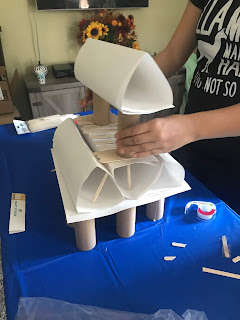Once upon a time in a far away land, there lived a beautiful girl who was given a position of influence. She used that position to save the lives of her entire ethnic group from a merciless slaughter. In saving their lives, she was risking her own. Her story describes acts of selfless courage, risking everything to save others, and good overcoming evil. Most of all it shows God's guiding hand in the lives of His people. Esther's actions prevented the Jews from being demolished by Haman. To celebrate their deliverance, the Jews celebrate Purim each year. Purim is a time for celebrating, eating, dancing, acting out skits, dressing up, and listening to the book of Esther being read.
Traditionally, Purim foods were simple. It was a vegetarian meal of wild rice and apples, lentils, challah bread, Hamantashen cookies, potato pancakes, potato dumplings, and plenty of wine. As time has moved on, the foods have evolved. What was once a feast of simple food, has become more elaborate and decadent. Meat has been added to the meal along with pastries, pasta, and soups. Jews also added dressing up in costumes to the celebration. This is to commemorate Esther hiding her ethnicity from the king. People arrive dressed in clown costumes, detectives, princesses, warriors, or whatever else they can find at the costume store. It is quite the party!
Today we celebrated our own version of Purim. Traditionally, Purim is celebrated in late February or early March, but since our book is covering it now, we celebrated it now:) I loved the foods that were presented today. You did a wonderful job making these delightful dishes. I was truly impressed! They were delicious too. I also have to thank those of you who raced out to rescue a bunny from my pool. There is never a dull moment at my house:)
 |
Challah bread is a common food to offer at Purim
|
 |
| Pastries galore! |
 |
Potato Pancakes (hash browns)
|
The Challah bread and pastries I bought are nothing compared to the ones brought in today. I wish I had taken a picture of them. Brooke and Melody went all out on making Challah bread from scratch!!, and Hamantashen. Wow! So good! Nina made Hamantashen from scratch too! You girls are talented in the kitchen. Elijah brought in Hamantashen from a wonderful bakery that were buttery and delightful. Yum! We certainly had a feast today. Does anyone feel overloaded on carbs?
This week you will be reading about Ancient India, China, Africa, America, and Europe. There were many different religions in these countries, and we are going to discuss them all. We will have a lot of events to discuss too. This will also be the first week that you will be reading from "In Their Words". Don't forget to read it!
Homework:
1. Read Unit 8
2. Research Hinduism
OR Buddhism. Explain their beliefs, practices, beginnings, and the differences or similarities to Christianity.
3. read "In Their Words", "The Jackal and the Partridge" (pg 36-39),
The Analects (pg 40-41) and
Ecclesiastical History of the English People (pg 44-45)
Have a great week!!!




















